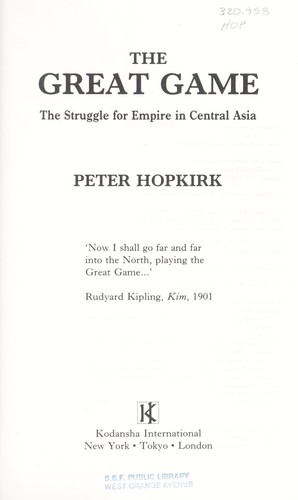
Kipling did not coin the phrase, which was first employed by Captain Arthur Connolly, who was executed in Bokhara in 1842 at the order of the Emir, after having been captured on a spying mission. The eponymous young protagonist becomes a vital link in the intelligence network developed by the British administration in Northern India during the 1880s to monitor, and then thwart, threatened incursions into central Asia by the Russians.


The phrase ‘The Great Game’ has been immortalised through Rudyard Kipling’s novel Kim. Based on meticulous scholarship and on-the-spot research, this is the history at the core of today's geopolitics. Now, in the vacuum left by the disintegration of the Soviet Union, there is once again talk of Russian soldiers "dipping their toes in the Indian Ocean." The Washington Post has said that "every story Peter Hopkirk touches is totally engrossing." In this gripping narrative he recounts a breathtaking tale of espionage and treachery through the actual experiences of its colorful characters. When play first began, the frontiers of Russia and British India lay 2000 miles apart by the end, this distance had shrunk to twenty miles at some points. The Great Game between Victorian Britain and Tsarist Russia was fought across desolate terrain from the Caucasus to China, over the lonely passes of the Parmirs and Karakorams, in the blazing Kerman and Helmund deserts, and through the caravan towns of the old Silk Road-both powers scrambling to control access to the riches of India and the East.

THE GREATGAME: THE EPIC STORY BEHIND TODAY'S HEADLINES Peter Hopkirk's spellbinding account of the great imperial struggle for supremacy in Central Asoa has been hailed as essential reading with that era's legacy playing itself out today.


 0 kommentar(er)
0 kommentar(er)
